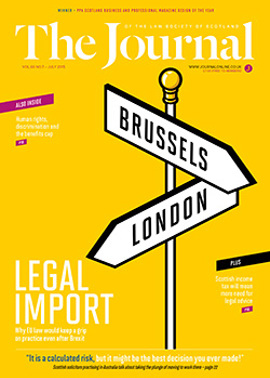Pension schemes: the VAT rules change

Recent pensions VAT developments
HMRC has recently revised its policy about the VAT treatment of pension scheme management services. This follows a number of European Court cases about whether management services provided to pension schemes are VAT-exempt and, if not, who can recover the VAT incurred on those costs. Both defined benefit (DB) and defined contribution (DC) schemes are affected. There is a transitional period, but only until 31 December 2015.
What is the CJEU’s impact?
HMRC previously allowed employers to deduct VAT incurred in relation to the administration of an occupational pension scheme on the basis that these costs were employer overheads. By contrast, it considered that investment management costs related solely to scheme activities were deductible by the scheme but not by the employer. Where fund managers supply both general scheme administration and investment management services, HMRC allowed employers to assume that 30% of the fees related to administration and to recover VAT paid on those fees. The other 70% were assumed to relate to investment management, and the VAT on that 70% could potentially only be recovered by the trustee (if VAT registered). HMRC accepted that insurance contract-based DC pension fund management services qualified for VAT exemption.
Several European cases have provided further clarity as to the VAT status of supplies connected with pension schemes:
An occupational DC scheme may qualify as a “special investment fund” (SIF), so the management services provided to it (including both investment management and administration services) are VAT-exempt. This is in contrast to HMRC’s previous approach whereby VAT exemption was granted on the basis of a supply of insurance (the ATP case).
A DB scheme is not a VAT-exempt SIF, nor is a common investment fund in which the assets of several DB schemes are pooled, so VAT is chargeable on management services provided in connection with DB schemes (the Wheels case).
An employer may be entitled to recover VAT paid on investment management costs in respect of its DB scheme, as there is a direct and immediate link between those costs and the employer’s business (the PPG case).
HMRC’s previous policy was not in line with these principles. Accordingly, HMRC has issued new guidance.
What should schemes do now?
Trustees and employers should review their investment management and administration service contracts now to identify those supplies on which VAT is charged.
Schemes should also review invoicing arrangements. They should consider having separate invoices for DB and DC arrangements, as HMRC accepts that most occupational DC schemes have historically been VAT-exempt.
For the administration and investment management costs of DB schemes, the best way to enable VAT recovery in the hands of the employer (which will typically result in a higher level of recovery than that available to the scheme) may be to have a tripartite contract between the supplier, trustee and employer. HMRC’s guidance sets out minimum requirements for tripartite contracts, and each party will need to consider carefully the implications of moving to such agreements. Although 31 December may seem a long way off, it can take time to arrange matters with the different parties, so any delays are advised against.
Finally, there may be scope to submit retrospective claims for VAT refunds.
July emergency budget
Writing ahead of the emergency Budget on 8 July, we know that clamping down on tax avoidance is likely to remain high on the Government’s agenda. There are significant concerns from businesses about how the Government will raise a further £5 billion from a crackdown on evasion and “aggressive avoidance”, as pledged in the Conservative manifesto.
We know from the manifesto that it is planned to increase the personal allowance and increase the threshold at which higher rate income tax is paid. We expect more information about the promised new transferable main residence IHT allowance of £175,000 per person, which effectively increases the IHT threshold to £1 million for married couples and civil partners. After Labour announced in the election campaign that they would abolish non-dom status, the Conservatives suggested that they too would look at changes, possibly by limiting the extent to which non-dom status can be inherited. The Conservatives have also suggested they might further increase the remittance basis charge.
“Scottish taypayers”
HMRC invites comments by 31 July 2015 on draft guidance setting out how it will determine who is a “Scottish taxpayer” for the purposes of the Scottish rate of income tax from April 2016, in particular in relation to individuals who have more than one place of residence. The Scotland Act 2012 requires an individual to have a “close connection” to Scotland, based on their “main place of residence” or time actually spent in Scotland in a tax year.
In this issue
- Caught by the cartels
- Refugees: why article 31 matters
- Virtual victims?
- How much should trainee solicitors be paid?
- Reading for pleasure
- Opinion: Malcolm Combe
- Book reviews
- Profile
- President's column
- Plans reports: yes or no?
- Farewell Brussels?
- Mind games
- Justifying discrimination
- Advance to Australia fair
- People on the move
- Reason for the rules
- Beware the (new) transfer traps
- Pension schemes: the VAT rules change
- Tenancies and the Land Reform Bill
- Scottish Solicitors Discipline Tribunal
- Are you ready for counterpart signing?
- Chapter and verse
- Street Law: a wildfire success
- Law reform roundup
- ADR directive affects complaints
- From the Brussels office
- Transforming perceptions
- Litigators in a fix?
- Unlucky Fridays?
- Flag up, or keep mum?
- Send in the auditors






